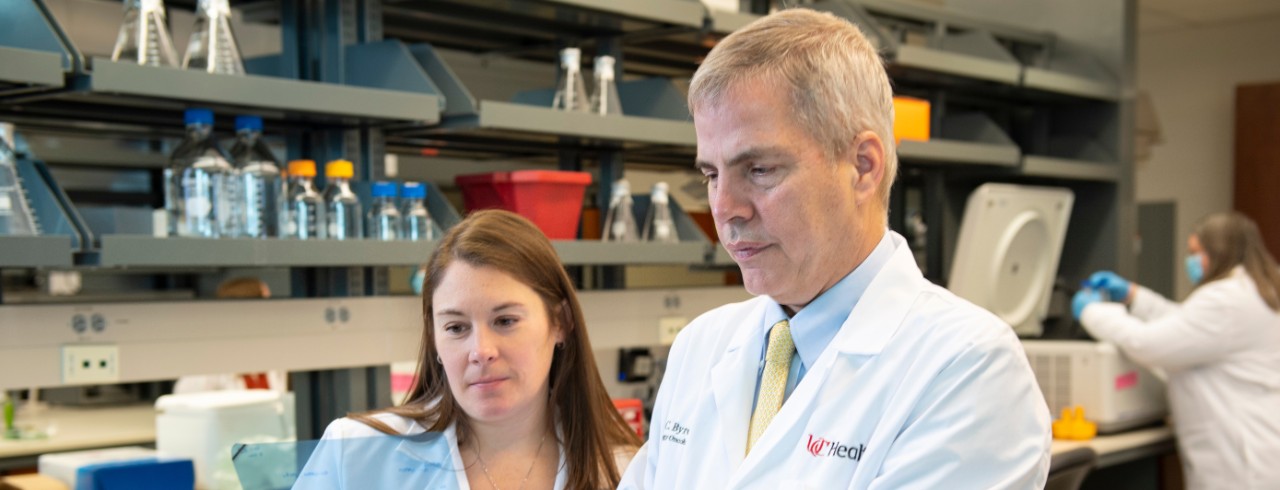
Pennsylvania news: Personalized treatment for deadly blood and bone marrow cancer
WFMZ-TV in Allentown, Pennsylvania recently highlighted the University of Cincinnati's John Byrd and the Beat AML study testing personalized treatment for patients with acute myelogenous leukemia.
“Although it has one name there are probably 15, 20 different types of AML. Before, when people were diagnosed with AML, they would come in and everybody would be treated the same way,” said Byrd, MD, a University of Cincinnati Cancer Center researcher, chair of the Department of Internal Medicine at the UC College of Medicine and the chief medical officer of the Beat AML study.
Using genetic sequencing, researchers are identifying what drives each patient's disease and personalizing treatments accordingly.
“Once a medicine gets approved in one indication, it can potentially be applied to a lot of other types of cancers that have that same mutation, but might be in a different part of the body,” Byrd said.
The Beat AML trial is unique because it a master trial studying multiple drugs at the same time.
Featured photo at top of Erin Hertlein, PhD, left, and John Byrd, MD, working in the lab. Photo/UC Foundation.
Related Stories
Local 12, Business Courier highlight Blood Cancer Healing Center
February 19, 2024
Local 12 and the Cincinnati Business Courier highlighted the University of Cincinnati Cancer Center's Blood Cancer Healing Center, a comprehensive all-in-one facility dedicated solely to advancing research, treatment and wellness for blood cancer patients, opening this summer.
Pennsylvania news: Personalized treatment for deadly blood and bone marrow cancer
April 26, 2023
WFMZ-TV in Allentown, Pennsylvania highlighted the University of Cincinnati's John Byrd and the Beat AML study testing personalized treatment for patients with acute myelogenous leukemia.
Medical News Today: Gene mutation may be a key to lung cancer treatment
September 21, 2022
Medical News Today highlighted recent research led by the University of Cincinnati's Pier Paolo Scaglioni, MD, that found targeting components of lipid metabolism and synthesis could lead to an effective lung cancer treatment.
